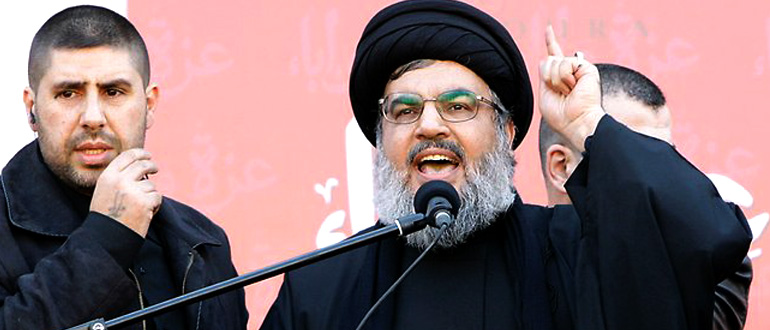In the annals of resistance, few names echo with the spiritual gravity and strategic brilliance of Sayyed Hassan Nasrallah. His life was not merely a political journey—it was a metaphysical stance against tyranny, a living embodiment of the Qur’anic injunction:
By Fida Hussain Bhat
In the annals of resistance, few names echo with the spiritual gravity and strategic brilliance of Sayyed Hassan Nasrallah. His life was not merely a political journey—it was a metaphysical stance against tyranny, a living embodiment of the Qur’anic injunction:
“And what is wrong with you that you fight not in the cause of Allah and for those who are weak?” (Qur’an 4:75)
Nasrallah did not merely resist occupation; he redefined resistance as a sacred duty, a covenant between the oppressed and the divine. His presence was a fortress—impenetrable to Zionist ambitions, unyielding to imperial designs. Under his leadership, Hezbollah became more than a militia; it became a moral axis, a deterrent against the realization of the Greater Israel project.
The Deterrence of Dignity
For decades, Zionist expansionism sought to redraw the map of the Levant, to annex Lebanon ideologically and territorially. But Nasrallah stood as a wall of fire. His speeches were not mere rhetoric—they were strategic incantations, infused with theological clarity and political precision.
As Imam Ali (as) said in Nahjul Balagha:
“The best form of jihad is to speak a word of truth before a tyrant ruler.”
Nasrallah spoke that truth, not only before tyrants but in defiance of their missiles, their media, and their machinations.
His martyrdom, however, marked a rupture in the moral geometry of the region. It was not just the fall of a man—it was the temporary eclipse of a spiritual sun. In his absence, the Zionist regime found the audacity to massacre Palestinians with impunity, to embezzle their land, and to desecrate their sanctuaries. The deterrence that once held back the tide of aggression had been pierced—not by weakness, but by the loss of a soul whose presence was itself a shield.
Syria and the Shifting Horizon
The ideological annexation of Syria, once a bastion of resistance, became conceivable only after Nasrallah’s departure. The rise of puppet figures, the normalization of ties with Zionist entities, and the erosion of revolutionary discourse all point to a vacuum—a space once filled by Nasrallah’s unwavering voice.
He had warned:
“The battle is not only with tanks and rockets. It is with narratives, with truth, with the soul of a people.”
His absence allowed the distortion of that narrative. The Zionist dream crept into Damascus not with boots, but with diplomacy, media, and betrayal.
Iran and the Unchecked Hand
Even Iran, the ideological heartland of resistance, felt the tremors of Nasrallah’s martyrdom. The assassination of scientists, the sabotage of nuclear sites—these were not mere tactical strikes. They were symbolic acts, attempts to fracture the spine of defiance.
Had Nasrallah lived, the retaliation would have been swift, strategic, and spiritually charged. His Hezbollah would not have remained silent.
As the Qur’an reminds:
“Indeed, those who have said, ‘Our Lord is Allah’ and then remained steadfast—angels will descend upon them…” (Qur’an 41:30)
Nasrallah was such a man—steadfast, unshaken, and surrounded by angels of resolve.
The Grief That Sustains
Yet Hezbollah is not defeated. It mourns, but it does not collapse. It bleeds, but it does not retreat. For Nasrallah did not merely lead; he infused. His martyrdom was not an end—it was a beginning.
His grief sustains the spirit of resistance. His absence sustains its presence.
As Khalil Gibran wrote:
“The soul walks not upon a line, neither does it grow like a reed. The soul unfolds itself, like a lotus of countless petals.”
Nasrallah’s soul now unfolds across the hearts of fighters, thinkers, and mourners. His legacy is not confined to speeches—it lives in the silence between explosions, in the prayers whispered before battle.
Martyrdom as Multiplication
Martyrdom, in the Shiite tradition, is not subtraction—it is multiplication. Imam Husayn (as) fell at Karbala, but his fall became the rise of a thousand movements.
Nasrallah’s martyrdom follows that arc.
“Do not think of those who are killed in the way of Allah as dead. Rather, they are alive with their Lord, receiving provision.” (Qur’an 3:169)
He lives—in every vow of defiance, in every child who learns the name of Palestine before their own.
The Road Ahead
Hezbollah today stands at a crossroads. Weakened, yes—but not broken. The resolve is doubled, the spirit refined. The movement now fights not only with arms, but with memory.
As Edward Said once wrote:
“Resistance is not only a reaction—it is a way of reimagining the world.”
Nasrallah reimagined a world where dignity could defeat drones, where faith could outlast firepower.
Conclusion:
Sayyed Hassan Nasrallah’s martyrdom is not a void—it is a voice. A voice that echoes in the mountains of Lebanon, in the alleys of Gaza, in the hearts of the oppressed. His absence is a paradox: it weakens the body but strengthens the soul.
Hezbollah may have lost its commander, but it has gained an eternal compass.
His grief is the fuel. His memory is the map. His martyrdom is the march.



